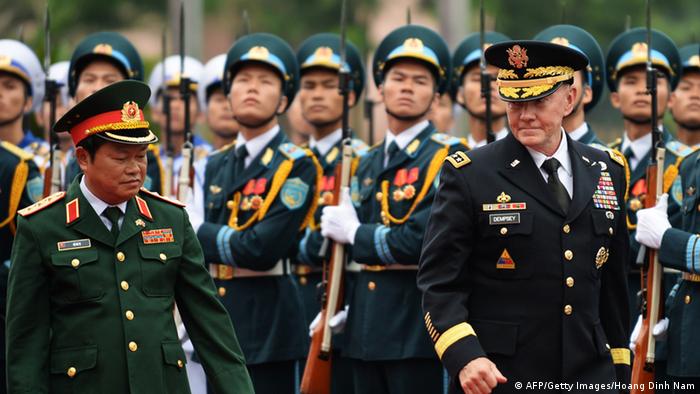
Source: Le Hong Hiep, “Vietnam’s Alliance Politics in the South China Sea”, Trends in Southeast Asia, No.6, 2015.
Executive summary:
– Vietnam has long maintained “no alliance” as a core principle in its foreign policy. However, as China becomes increasingly assertive in the South China Sea, there are indications that Vietnam is moving towards “alliance politics”, or efforts to forge close security and defense ties short of formal, treaty-bound alliances with key partners, to deal with the new situation.
– The need for such a shift in Vietnam’s China strategy became more relevant after the 2014 Haiyang Shiyou 981 oil rig crisis displayed the limitations in Hanoi’s hedging strategy. It deepened Vietnam’s perception of China as a serious threat and highlighted the irreconcilability between its twin goals of maintaining good relations with China and protecting its interests in the South China Sea.
– Vietnam is now able to avoid the strategic costs that China used to impose on the country in the late 1970s and the 1980s after Hanoi had forged an alliance with Moscow to counteract Beijing. This is due as much to new domestic and bilateral conditions as to shifts in the regional geo-strategic landscape.
– Vietnam’s alliance politics can be traced through its strengthened security and defense ties with key partners who share convergent interest and threat perceptions in the South China Sea, most notably the Philippines, Japan, and the United States.
– However, it is not likely that Vietnam will enter into formal, treaty-bound alliances with these and other partners as such arrangements will limit its policy options and unnecessarily exacerbate its already tense relations with China.
– Being for defensive purposes, Vietnam’s alliance politics in the South China Sea will probably wither away once China adopts a peaceful and law-based approach to the disputes, or the disputes themselves are eventually solved in a peaceful manner. However, given China’s maritime ambitions and its growing power, these latter conditions are hardly realistic. Therefore, Vietnam’s alliance politics in the South China Sea will likely continue and contribute to the transforming of the region’s geo-political dynamics in the years to come.
Introduction
Bilateral normalization and the “Three no’s principle”
The increasing irrelevance of the “Three no’s principle”
The case for Vietnam’s pursuit of alliance politics
How has Vietnam pursued alliance politics?
Conclusion
Download: Fulltext PDF

